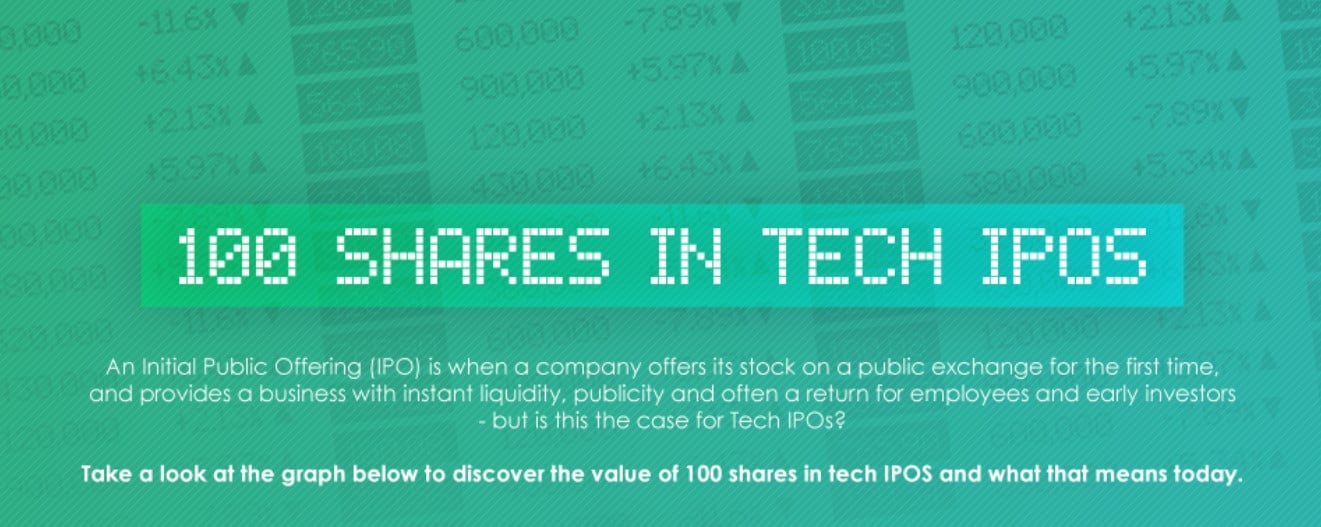Before we get into how much 100 shares of top tech IPOs would be worth today we must note caveat emptor and future returns do not correlate with prior ones. With that said, lets start.
What is an IPO?
An Initial Public Offering (IPO) is when a company initially offers its stock on a public exchange. They provide a unique opportunity for investment and provide businesses with liquid assets and vital public attention. IPOs allow any investor to buy stocks in a company, whereas before this the public would have to ask the owners to sell them.
What are the benefits of an IPO?
As well as creating attention around a business, an IPO is less expensive due to its public nature. Asking a private company to borrow money results in higher costs. This is a financial burden that is often too much to bear in a company’s early stages. The value of a share also increases when it is in a public interest.
Q2 hedge fund letters, conference, scoops etc
Early investment and historical value
If you were to have been ahead of the game and invested in the initial stages of what are now globally successful companies, it will come as no surprise that you could have earnt significant IPO.
In December 1980, when owning a computer was not commonplace, Apple initially offered stocks at a cost of $22. Needless to say, they sold out in a matter of minutes. it’s unlikely even the most knowledgeable early investors could have anticipated the company would grow to become the international empire that we are familiar with today.
If you were to buy the same share now, it would cost over $200. If you had pre-empted success and bought 100 shares in December of 1980, they could now be sold for an impressive $20,000.
Apple isn’t the only IPO opportunity you may have missed out on. Retail giant Amazon is another big name. In its early stages, Amazon didn’t have the same international recognition as it does today. Around 20 years ago, the share price of Amazon was $18, which has since increased to nearly $2000. Investing in 100 shares of Amazon in 1997 could have resulted in a sale of approximately $180,000 today, an ROI increase of 9884%.
However, hindsight is a wonderful thing, and it is often impossible to detect the full potential of an initial start-up company. Investing in stocks and shares isn’t a decision you should make lightly, either.
Social media and streaming services
Apple and Amazon are amongst a wealth of influential companies that have seen a significant rise in shares over the years. Social media giants Twitter and Facebook have also experienced impressive growth, despite their relatively young age in the grand scheme of things.
The value of 100 Twitter shares has increased from $2600 in 2011 to $3191 in 2019, an increase in ROI of 23%.
In 2010, the value of 100 shares of Facebook was $3800, which increased to $17 000 in 2018. This is a colossal ROI increase of 352%, welcome news for those original investors.
Another modern development is the change in television consumption habits of consumers. In 2018, the number of people subscribing to TV streaming services overtook the number of individuals paying for traditional TV services for the first time. This change in habits can be observed in the increase in the value of 100 shares of Netflix, a major leader in this area. The value of 100 Netflix shares value rose from $1500 in 2010 to $6435 in 2018, an ROI increase of 2156%, the second largest after Amazon out of all tech companies that were researched.
In an age where technology continues to shape the way that we live our lives, and regardless of whether you agree with its influence, it seems likely that the ROI of these companies will continue to grow. However, as ROI can never be predicted and shares are subject to change, nothing is guaranteed.






